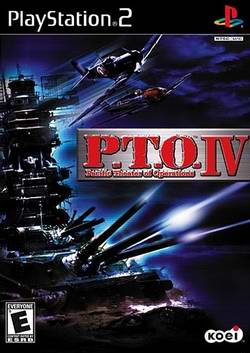Pacific Theatre or Pacific Theater may refer to:
AMC may refer to:
The Pacific Ocean is the largest ocean in the world.
Supreme Allied Commander is the title held by the most senior commander within certain multinational military alliances. It originated as a term used by the Allies during World War I, and is currently used only within NATO for Supreme Allied Commander Europe and Supreme Allied Commander Transformation.

Koei Co., Ltd. was a Japanese video game publisher, developer, and distributor founded in 1978. The company is known for its historical simulation games based on the novel Romance of the Three Kingdoms, as well as simulation games based on pseudo-historical events.
PTO may refer to:
Pacific campaign or Pacific campaigns, usually refers to the Pacific War (1941–1945): campaigns involving Allied and Axis forces, in the Pacific and Asia during World War II.
Eastern Front may refer to:

The South-East Asian Theatre of World War II consisted of the campaigns of the Pacific War in the Philippines, Thailand, Indonesia, Indochina, Burma, India, Malaya, and Singapore between 1941 and 1945.
In warfare, a theater or theatre is an area in which important military events occur or are in progress. A theater can include the entirety of the airspace, land, and sea area that is—or that may potentially become—involved in war operations.

Pacific Ocean Areas was a major Allied military command in the Pacific Ocean theater of World War II. It was one of four major Allied commands during the Pacific War and one of three United States commands in the Asiatic-Pacific Theater. Admiral Chester W. Nimitz of the U.S. Navy, Commander in Chief, U.S. Pacific Fleet, headed the command throughout its existence.
The South Pacific Ocean or "South Pacific" is the Southern Hemisphere portion of the Pacific Ocean.
Coronet is a type of crown.
The Pacific War (1941–1945), also known as the Pacific Theaters of World War II, was a conflict that pitted Axis forces, primarily the Empire of Japan, against the Allies.
Theatre of War or Theater of War may refer to:

P.T.O. IV, released as Teitoku no Ketsudan IV (提督の決断IV) in Japan, is a World War II-themed strategy for the PlayStation 2 and PC produced by Koei. It focuses on naval combat in the maritime theaters of World War II, encompassing the Pacific Ocean, Mediterranean Sea, Atlantic Ocean, and Indian Ocean, with the option of playing as one of four major maritime powers of the time: Germany, Japan, the United Kingdom, or the United States. P.T.O. IV is the latest game in Koei's P.T.O. series.

P.T.O., released as Teitoku no Ketsudan (提督の決断) in Japan, is a console strategy video game released by Koei. It was originally released for the PC-9801 in 1989 and had been ported to various platforms, such as the X68000, FM Towns, PC-8801 (1990), MSX2 (1991), Sega Genesis and the Super NES. Players could assume one side of the Pacific Theater of Operations during World War II, acting as naval commander, organizing fleets, building new ships, appropriating supplies and fuel, and even engaging in diplomacy with other countries. The player can choose one of several World War Two battles to simulate, or could control the entire Pacific campaign well before the Japanese attack on Pearl Harbor.

Strategic Command is a series of computer video games developed by Fury Software and Battlefront.com, and published by Excalibur Publishing. Since the premiere of the first game in the series, Strategic Command: European Theater in 2002, eight further new titles and six expansion packs have been released, with the ninth game released in 2022, Strategic Command: American Civil War, being the most recent one. Including re-releases, expansions, and the 2019 bundle Strategic Command: Complete, 22 different titles are included in the series.
P.T.O. II, released as Teitoku no Ketsudan II (提督の決断II) in Japan, is a Koei strategy video game that depicts the conflict between the US and Japan during World War II. The video game is a sequel to P.T.O. It was originally released in 1993 for the NEC PC-9801 and had been ported to various platforms since, such as the Super Nintendo Entertainment System.